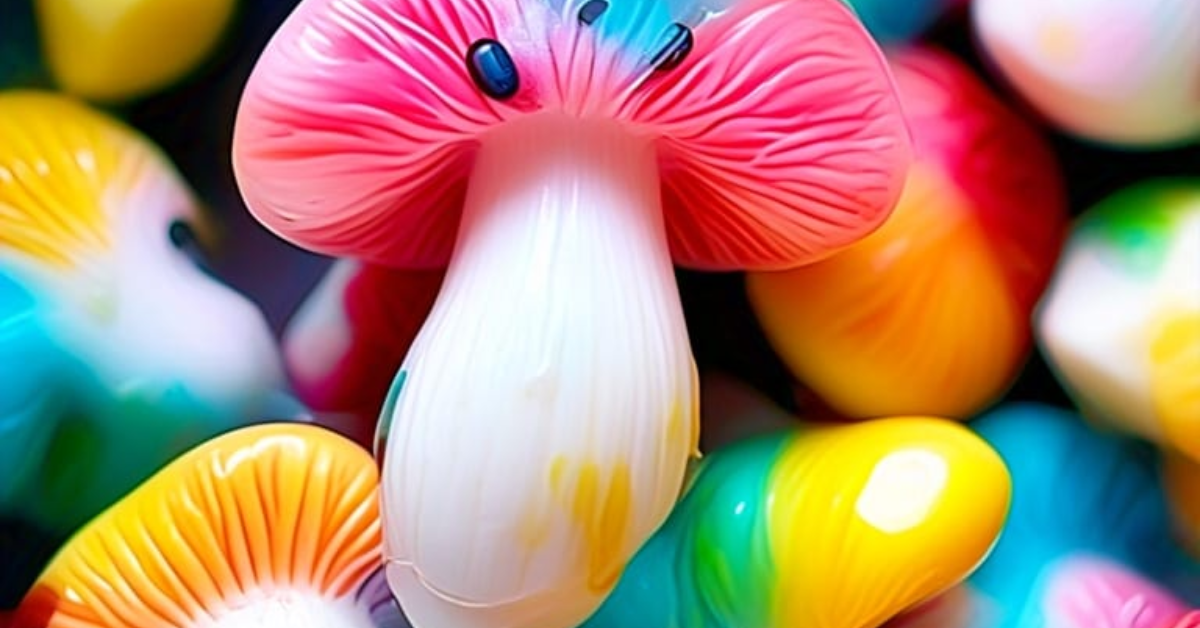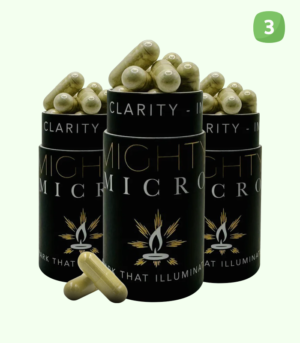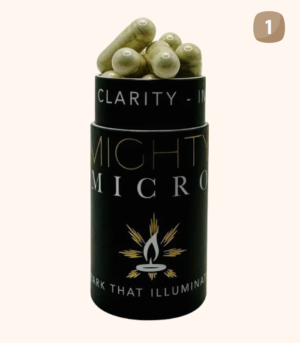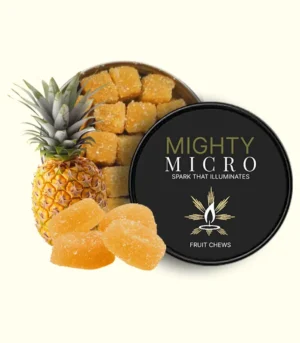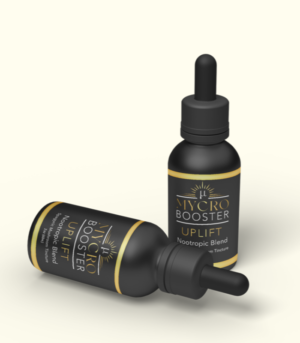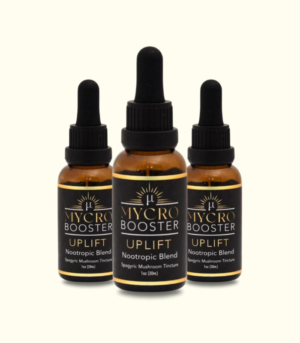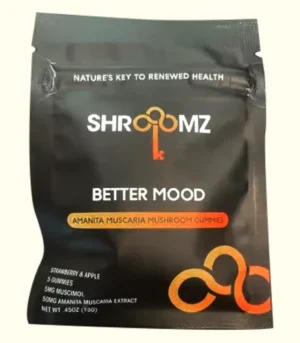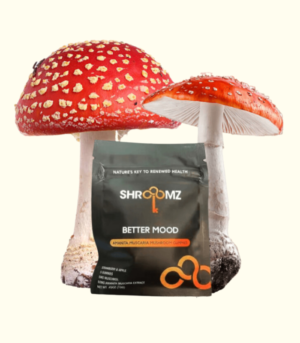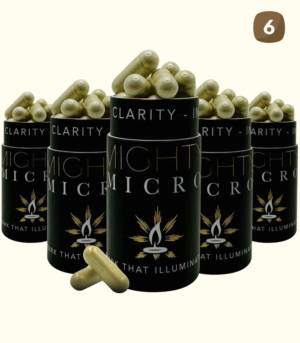Magic mushroom gummies are gaining popularity as a convenient and palatable way to consume psilocybin, the psychoactive compound in magic mushrooms. Studies indicate a growing interest in psilocybin for mental health benefits, with research showing that about 71% of participants in a 2020 Johns Hopkins study reported significant relief from major depression after two doses of psilocybin.
Gummies offer an accessible alternative to traditional mushroom forms, providing controlled dosages that can make it easier for users to manage their intake, whether microdosing or taking a full dose. With their pleasant taste and discreet form, magic mushroom gummies appeal to individuals exploring psilocybin’s potential benefits in both recreational and therapeutic contexts.
What Are Magic Mushroom Gummies?
Magic mushroom gummies are edible products that contain a measured dose of psilocybin, extracted from various species of psychedelic mushrooms, such as Psilocybe cubensis. The psilocybin extract is mixed with a gummy base, creating an edible that’s easy to consume and dose. They come in a variety of flavors, shapes, and dosages, making them more appealing than raw mushrooms, which have a bitter and earthy taste.
Common Uses of Magic Mushroom Gummies
Magic mushroom gummies are increasingly popular for their convenient and controlled psilocybin dosing, catering to various uses:
1. Mental Health and Therapeutic Benefits
- Anxiety and Depression Relief: Many people use psilocybin gummies to help manage symptoms of anxiety and depression. Research shows psilocybin may support positive mood changes and emotional processing by altering serotonin activity in the brain.
- PTSD and Trauma Therapy: Magic mushroom gummies are being explored for PTSD treatment, helping some individuals process traumatic memories in a therapeutic setting.
2. Self-Reflection and Personal Growth
- Introspection: The gummies are often used for self-exploration, helping users gain insight into personal issues, behaviors, or life goals. Psilocybin’s impact on thought patterns encourages this reflection.
- Creativity Boost: Artists and professionals sometimes use psilocybin in low doses to stimulate creative thinking, providing new perspectives and mental clarity.
3. Pain Management
- Chronic Pain Relief: While not a replacement for medical treatment, some individuals use magic mushroom gummies to manage chronic pain by shifting how they perceive and process pain.
4. Microdosing for Daily Wellness
- Mood and Energy Enhancement: Small doses, or microdoses, of psilocybin, can be used to boost mood, focus, and energy levels without the hallucinogenic effects. Many find this helpful for improving day-to-day mental well-being.
5. Spiritual Experiences
- Mindfulness and Connection: For some, these gummies are a path to spiritual growth, enhancing mindfulness, connection to nature, or other transcendent experiences.
Where Can I Buy Magic Mushroom Gummies?
Do Magic Mushroom Gummies Relieve Pain?
Magic mushroom gummies, which contain psilocybin (the active compound in psychedelic mushrooms), are increasingly being explored for their potential therapeutic effects, including pain relief. While psilocybin is most commonly associated with its effects on mood, perception, and cognition, research is beginning to examine its potential in pain management, particularly for chronic pain and pain related to mental health conditions.
How Magic Mushroom Gummies May Relieve Pain?
- Interaction with Serotonin Receptors
- Psilocybin in magic mushroom gummies converts into psilocin in the body, which binds to serotonin receptors, especially 5-HT2A receptors. This interaction can modulate pain perception, reducing the brain’s response to pain signals.
- Altered Pain Perception
- By changing how the brain interprets pain, psilocybin can help lower the intensity or emotional distress tied to chronic pain. This effect is particularly beneficial for individuals experiencing persistent discomfort.
- Enhanced Neuroplasticity
- Psilocybin promotes neuroplasticity, encouraging the brain to “reset” and form new thought patterns. This can shift the way pain is experienced emotionally, helping users cope better with chronic pain.
- Mood Elevation and Reduced Anxiety
- Psilocybin is known for its mood-boosting effects, which can indirectly reduce pain perception. Pain often feels more intense under stress or negative emotions, so by elevating mood and alleviating anxiety, psilocybin can help diminish the overall sensation of pain.
- Reduced Emotional Response to Pain
- Magic mushroom gummies can lessen the emotional toll of pain by calming areas of the brain linked to emotional distress. This can be particularly helpful for those whose pain is tied to mental health conditions like depression or PTSD.
Are Magic Mushroom Gummies Legal?
Magic mushroom gummies are generally illegal in the United States because they contain psilocybin, which is classified as a Schedule I controlled substance under the federal Controlled Substances Act. This designation makes psilocybin illegal to possess, manufacture, or distribute nationwide, including in gummy form. However, some states and cities have recently decriminalized or taken steps toward allowing certain uses of psilocybin, which impacts enforcement and access in specific areas.
Exceptions and Changes by State and City
- Oregon:
- Oregon was the first state to legalize psilocybin for therapeutic use. Under Measure 109, passed in 2020, licensed facilitators can administer psilocybin in supervised settings. However, this doesn’t extend to recreational use, and psilocybin gummies or other forms for personal consumption remain illegal outside of these therapeutic settings.
- Colorado:
- Colorado passed Proposition 122 in 2022, which decriminalized psilocybin statewide and created a pathway for regulated psilocybin therapy. While personal possession and use are decriminalized, psilocybin sales are still restricted, and gummies or other recreational forms are not fully legalized.
- Cities with Decriminalization:
- Some cities have decriminalized psilocybin to varying degrees. These include:
- Denver, Colorado: Decriminalized in 2019, making psilocybin possession a low priority for law enforcement.
- Santa Cruz and Oakland, California: Decriminalized personal use and possession of natural psychedelics, including psilocybin.
- Washington, D.C.: Passed Initiative 81 in 2020, deprioritizing law enforcement against those using entheogenic plants and fungi, though psilocybin remains technically illegal.
- Some cities have decriminalized psilocybin to varying degrees. These include:
How Long Do Magic Mushroom Gummies Last?
The effects of magic mushroom gummies, like other psilocybin-containing edibles, generally last between 4 to 6 hours, depending on factors such as dosage, individual tolerance, and metabolism. Here’s a more detailed breakdown of what to expect with magic mushroom gummies:
Onset of Effects
- 30 to 60 Minutes: Magic mushroom gummies usually take about 30 to 60 minutes to kick in, as they need to be digested before psilocybin is converted into psilocin, the compound that produces psychoactive effects. The onset may vary depending on whether you’ve eaten recently or your metabolism.
Peak Effects
- 1 to 3 Hours: The peak typically occurs around 1 to 3 hours after ingestion, where users may experience the most intense effects, including altered perception, euphoria, visual changes, and introspective or emotional insights.
Duration of Effects
- 4 to 6 Hours: The full experience usually lasts about 4 to 6 hours, though effects may linger longer for higher doses. At the tail end, the effects gradually diminish rather than stop abruptly.
Aftereffects
- 12 to 24 Hours (Residual Effects): While the primary psychoactive effects wear off within 6 hours, some people report feeling “afterglow” effects like mood enhancement, introspective feelings, or mild fatigue for up to a day afterward. This period is usually much milder and doesn’t interfere with regular activities.
Factors Influencing Duration
Several factors influence how long the effects last, including:
- Dosage: Higher doses generally lead to longer-lasting and more intense effects.
- Body Composition and Metabolism: Those with a faster metabolism may process psilocybin more quickly.
- Tolerance: Regular users may build a tolerance, reducing the duration and intensity of effects.
- Food Intake: Taking gummies on an empty stomach often results in faster onset and potentially stronger effects.
Conclusion
Magic mushroom gummies provide a modern, controlled, and user-friendly way to experience the benefits of psilocybin, whether for microdosing, therapeutic exploration, or recreation. As interest grows, so does research, which may lead to broader acceptance and more widespread legal options for their use. However, it’s essential to approach magic mushroom gummies responsibly, especially if you are new to psilocybin, and be mindful of the legal landscape in your area.
FAQs
Do Magic Mushroom Gummies Work?
Yes, magic mushroom gummies work by converting psilocybin into psilocin, which interacts with the brain’s serotonin receptors. This can improve mood, reduce anxiety, enhance creativity, and aid in pain management. Psilocybin has shown promise for treating mental health issues like depression and PTSD. However, effectiveness varies based on dosage, and individual factors, and more research is needed on their long-term effects.
How should I store magic mushroom gummies?
Store them in a cool, dark, and dry place, away from heat and moisture to preserve potency. Many users store them in the refrigerator to maintain freshness.
Can magic mushroom gummies be used for depression or anxiety?
Preliminary studies suggest that psilocybin may help alleviate symptoms of depression and anxiety. Some people find relief from these symptoms with magic mushroom gummies, but professional guidance is advised, as research is ongoing.
Are magic mushroom gummies safe to consume?
When used responsibly in a safe setting, they are generally considered safe for most people. However, they may not be suitable for individuals with certain mental health conditions or those taking specific medications. Always consult a healthcare professional if unsure.

